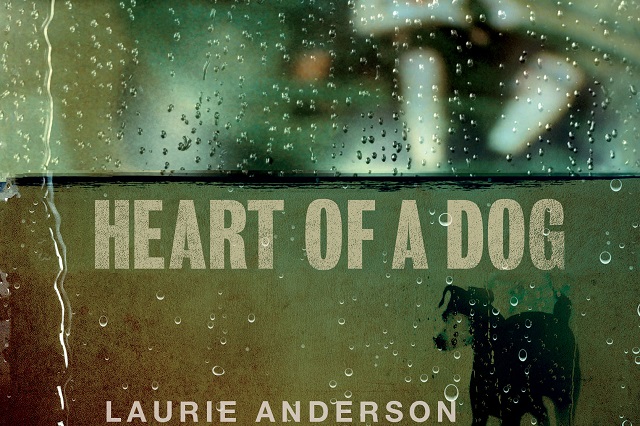One of the highlights of last years LFF, where she came for one of the LFF Connects events for a conversation with Brian Eno about the links between film with performance arts and music; Laurie Anderson’s first feature film since 1986 the concert tour documentary ‘Home Of The Brave’ is a meditative essay on loss centered on her late rat terrier, Lolabelle. From the opening credits, the animation of a dream in which the artist gives birth and declares eternal love to her dog depicts the strong bond formed between owner and pet, almost as a replacement for parental affection. Anderson’s inquisitive mind was keen to understand the possibilities of the canine sensory world and her explorations shape an uplifting, full of humour tribute to her pooch that has continued with a series of concerts for a dog only audience. Among the memories of their time together, when Lolabelle went blind she was trained to play piano and perform at charity concerts for animal rights associations; recorded a Christmas song and even opened a Facebook account.
The death of loved ones often prompts a reflection on life and the experimental artist’s sharp observations jump from the animal world to the streets of New York, quoting philosophers Soren Kierkegaard and Wittgenstein,on her remarks about some of the everyday changes in post 9/11 America. The new anti-terrorism laws gave shape to a new paranoia-driven reality. The arrival of surveillance cameras enabled the government to undertake an unprecedented monitoring of its citizens, generating an enormous amount of data that reconstructs their movements in detail. The right to privacy became its collateral damage.
Lolabelle is not the only painful loss Anderson has suffered recently. Her thoughts move from political commentary to personal confession as she also deals with the death of her mother. Using 8mm home movies, she remembers their uneasy relationship through an account of childhood traumas and family accidents which brings a darker, more melancholic mood. Her partner, Lou Reed, to whom this work is dedicated, also passed away. Though the legendary musician only appears in a scene showing the couple in the beach and the closing titles use his song “Turning Time Around”, his memory is inevitably present.
Visually, this documentary fits well within her experimental legacy, using an array of different techniques. Despite its subject’s implicit sadness, Anderson’s soothing voice sounds like she’s imparting a mindfulness class to cope with grief as she narrates the Tibetan book of the death. Buddhist philosophy teaches “how important it is to learn how to feel sad without being sad”. In their theories death is not seen as a negative ending but a positive process leading to reincarnation. “It should not be about regrets, what we didn’t do or say. Its purpose instead should be the release of love”. Mirroring this calm, non mournful approach the film’s delivers its uniquely heart-warming appeal.
